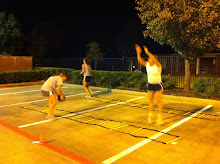Eating Healthy should be one of our primary objectives in life, and though we all know about the importance of watching what we eat and exercising regularly, we tend to neglect these things, thanks to our busy lifestyles! But managing your weight and staying healthy is not as hard as you think. With just a little more attention to your eating habits, you can make a lot of difference. Adding plenty of vegetables and fruits, eating out less, and eating smaller portions with spaced-out meals are some of the things that can help you stay fit and energetic. We owe this to ourselves and our families. So here are some basic tips on healthy eating habits that you can follow to stay on track!
The content below will not be new to a lot of you, and yet it's always a good practice to revisit your eating habits. Just take a printout and put it on your fridge where you and your family can look at it every day. It's also a great way to make your kids aware of how important it is to watch what you eat! These daily dietery changes can keep you away from obesity and a lot of other health problems!
Never Skip Your Breakfast - This is the most important meal of the day! Try to incorporate fresh fruit, unsweetened cereal high in fiber with skim or 1 percent milk, fat-free, oat and whole wheat breads in your breakfast. And don't forget the protein! This will help you stay fuller longer. Cut your intake of syrups, whip cream and butter to half if possible.
Order Smaller Portions - It's not forbidden to eat out, but try to go for smaller portions or share dishes with friends. Also limit high-fat, high-calorie toppings and condiments, such as bacon, cheese, mayonnaise, sauces and dressings.
Space Out Your Meals - Its very important to eat regular meals. Skipping meals can lead to out-of-control hunger, often resulting in over-eating. When you're very hungry, it's also tempting to forget about good nutrition. Have at least 4-5 meals a day and divide your calorie intake between them.
Enjoy Your Food - Sounds silly, but this is really important. Science has proved that it takes at least 20 minutes for the brain to register that you have eaten enough and it sends out "I am full" messages. So chew your food instead of gulping it down; relax and enjoy your meal as it can even psychologically elevate your mood.
Choose Broiled or Grilled over Fried - This option cuts out so much fat and calories with just a little compromise on the taste. And with proper seasonings and sauces, you might not even know the difference!
Choose Lean Meat and Green Salads - Salads are healthy, but they can become high-calorie because of the dressings and other additions. Load your plate with fresh fruits and vegetables or healthy lean meats like turkey or chicken. Choose low-fat or fat-free dressings and limit cheese, eggs, and croutons.
Beware of Sauces and Condiments - You'd be surprised at how many calories are loaded in mayonnaise, ketchup, mustard, sauces and condiments, and they have a very high sodium content! Avoid these or go for lighter options when possible.
Choose Lighter Desserts - It's perfectly ok to celebrate an occasion with chocolate and cheesecake, but for most of your sweet-tooth cravings, settle for fresh fruits drizzled with honey or light whip cream.
Switch to Olive Oil - Even when you saute your veggies, use wine, olive oil, or canola oil instead of regular vegetable oil. Use nonstick cookware or cooking sprays to eliminate the need for oil or butter.
Create Variety in Food - Last, but not least, it's imperative that you include different types of nutrient-rich food in your meals. Eating the same thing everyday is boring and unhealthy; Your daily food selection should include bread and other whole-grain products, fruits, vegetables, dairy products, meat, poultry, fish and other protein foods. Also fill up on fiber as that helps control your cravings.
These are simple daily habits that you can incorporate slowly. Changing your eating style can do wonders for your body and mind. Get to know healthy foods and add them to your meals. It's alright to indulge in your favorite foods, but just make sure you don't over-do it, and make up for it the next day. Just keep these healthy eating tips in mind and enjoy your food. Your body will definitely thank you for it!




















